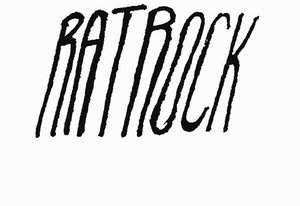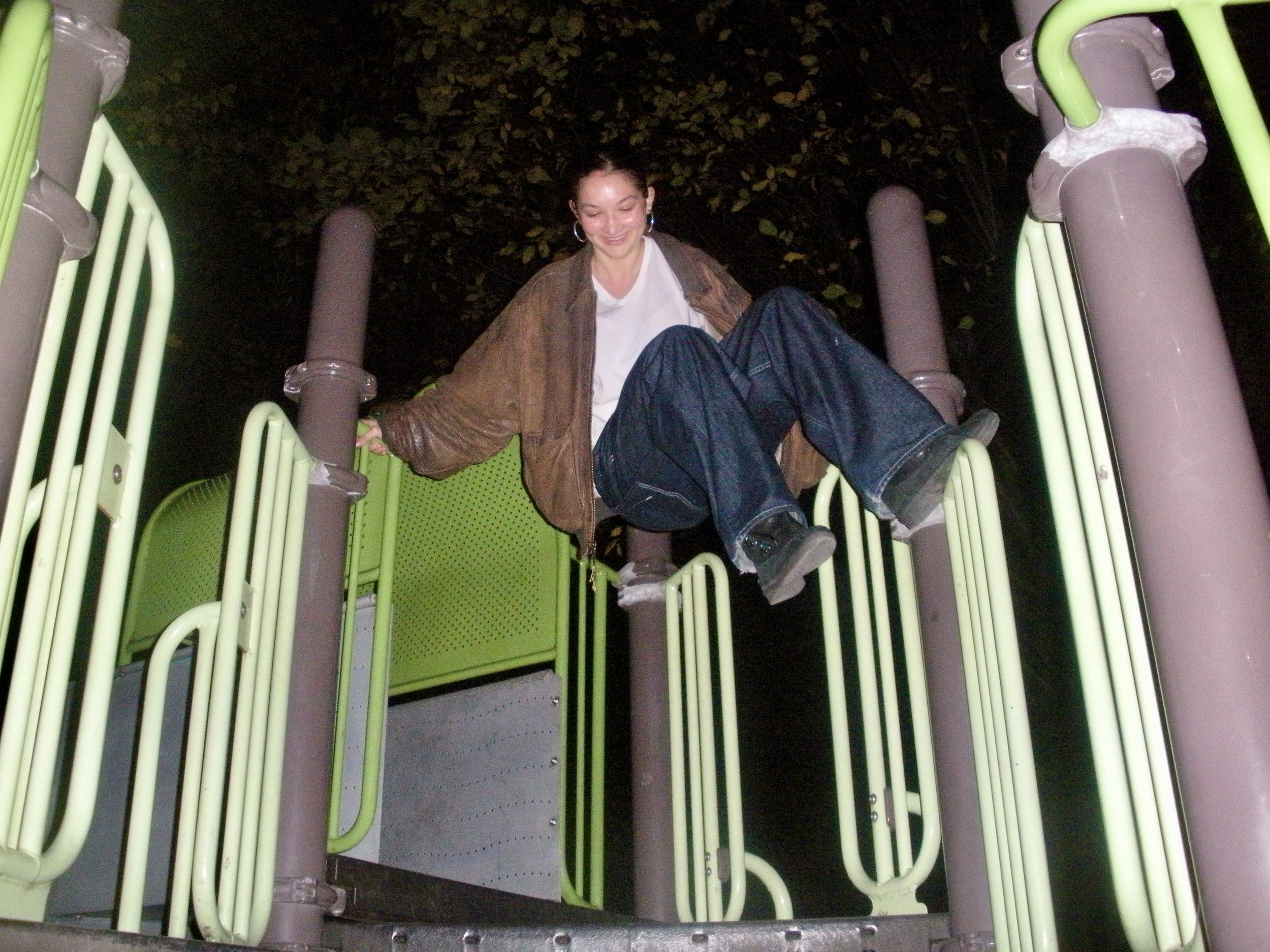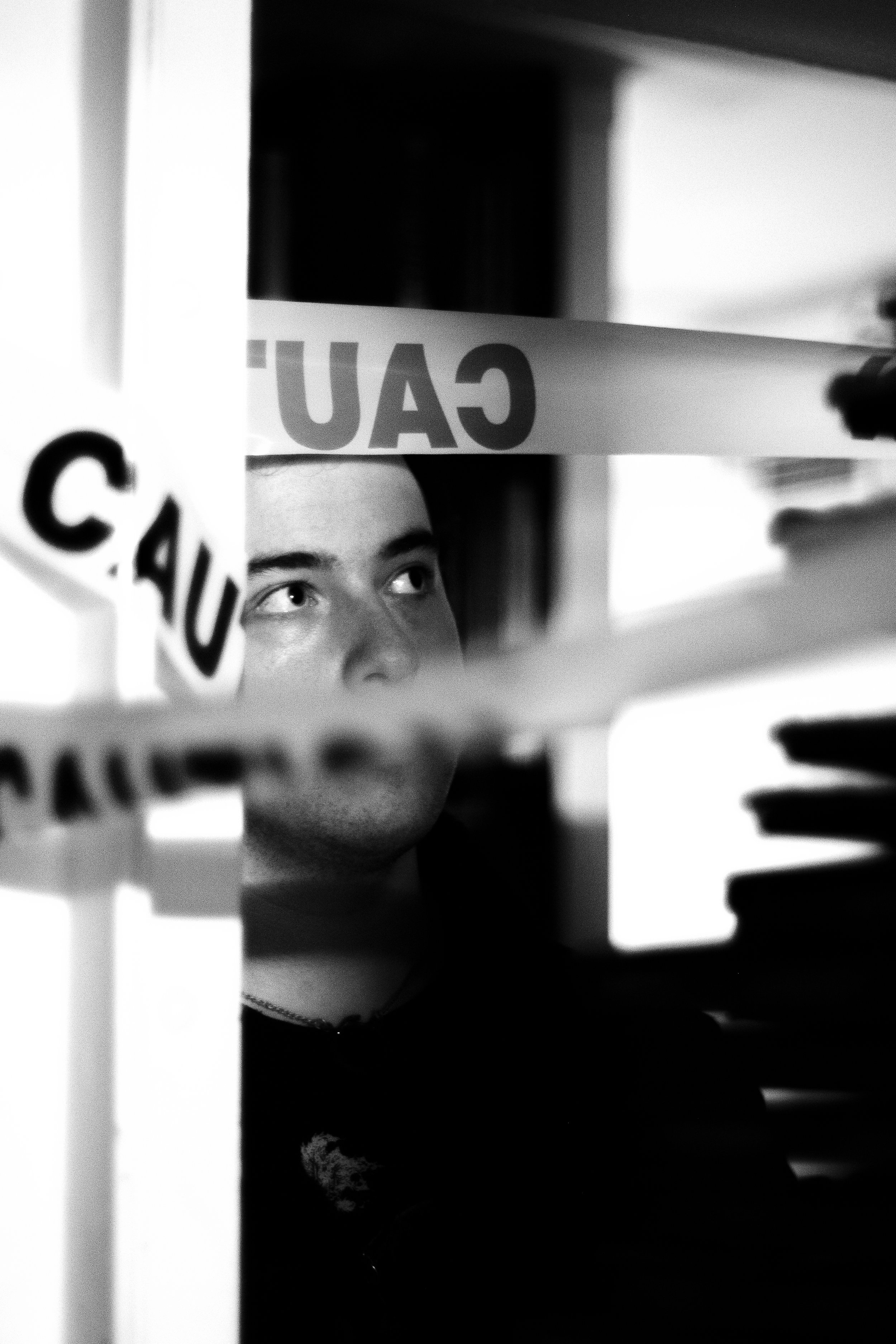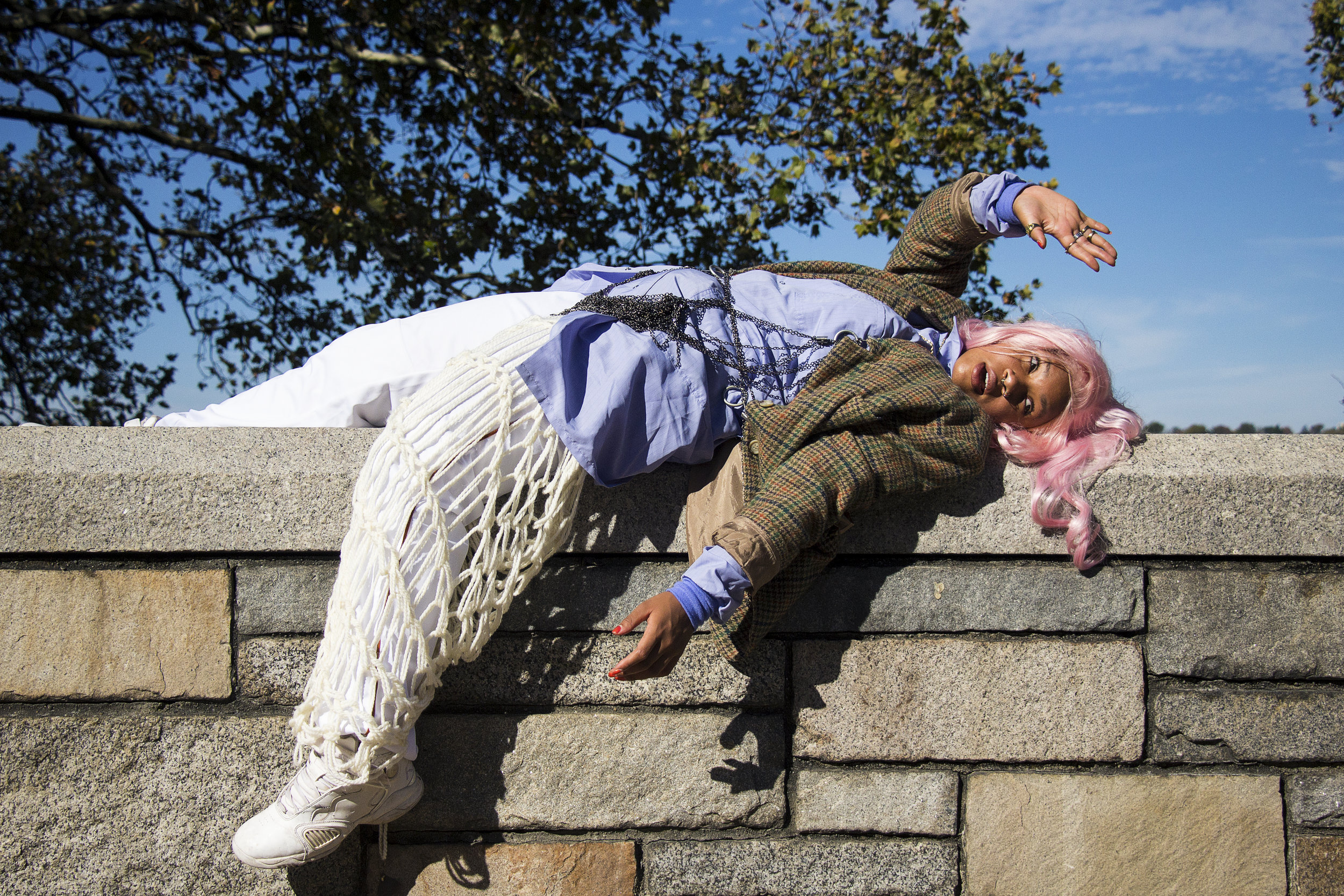

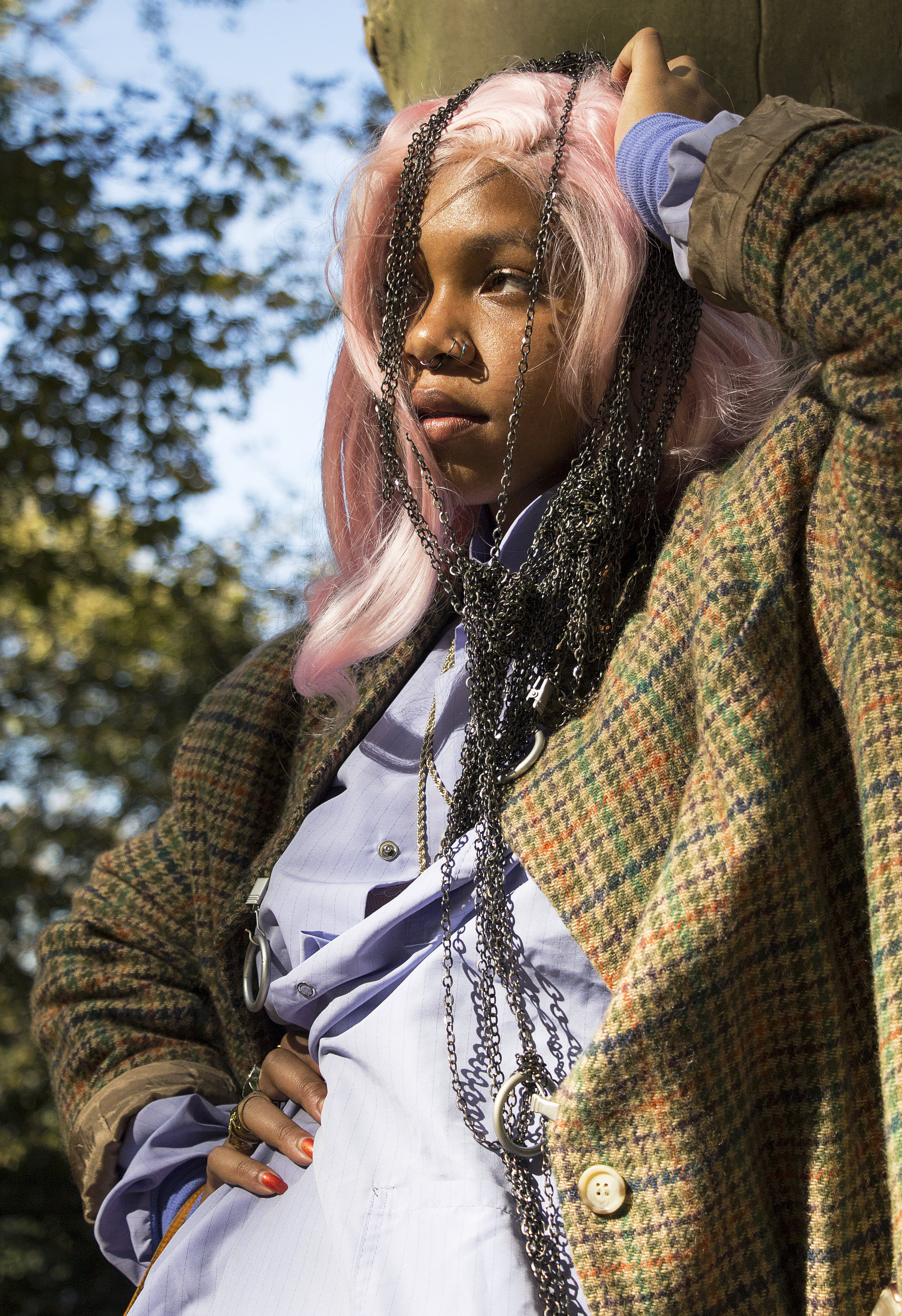


Photography by Evelyn Wolfley
Interview by Yosan Alemu
I know that you express yourself through various different mediums; visual art, poetry, music, modeling, etc. How did you find these avenues?
I feel like in a lot of ways I was forced to find my art through more than one avenue because I think about art in terms of concepts. I think this can be attributed to my artist mentors. I was part of a nonprofit, and I was in this program, being taught by these really dope black conceptual artists who were working and doing their own thing while they were teaching other black or low income youth to make their own art and to make it really dope. So being raised under them, I was taught that your art has to have a concept behind it, and it doesn't necessarily always have to be political. I mean you could go off of the idea that the personal is political, and a lot of times, with black artists it is inherently that way. But because my art was centered around having a concept, or a language, I think there was never a time where I thought I could just do that through visual art. I felt like I had to do it through different mediums whether it be sculpture or just in general like creating a sense or an experience for the person who's consuming my art.
When you’re creating, do your different mediums of art ever overlap?
I definitely think so. When it comes to making clothes–for me at least–I definitely think of them visually. I think of them in a certain scene, and I didn't always realize this until somebody asked me where ideally I would like my clothes to be worn. And I was like "Oh I think of living in a post-apocalyptic world where niggas only listen to Missy Elliot and white people don't exist." And afterwards, I was like "Damn, I actually have an entire set up here”, and this is what it felt like when I started exploring that more, and then getting into being the photographer of my work. Clothes mean a lot to me because of the statements they make, and when I started to actually play around with how my clothes look in a visual sense, I started imagining what this specific world would be like, and how that reflects my experience as a black woman. In my art, I like to create worlds for black kids where they feel comfortable, where they are free to imagine and create concepts of their own.
When you’re creating a photoshoot, what is the process like?
Good question. I think it depends every time. Usually I’ll look at my clothing and then ask myself where I would want the pieces to exist. I also like to pair the clothes with a location that I have in mind just because the scenery is very important to me. For example, you know the idea that the people you see in your dreams are actually people you’ve come across in your conscious life? That’s how I see the locations I choose. I'll drive by a parking lot at night and realize this location is pretty dope, and I’ll go from there. And so, I come up with the location and then I come up with somebody who could fit the clothes I’ve made, and not to sound cheesy, but we build from there, start adding things until literally the very last minute. It’s a very interactive process.
What is your favorite clothing item? Favorite accessory?
Accessories. Period.
If you could consume one medium of art for the rest of your life, what would it be?
I feel like I'm kind of cheating, but I would say film. In film you have the visuals, the movement, the people, and the story line. You also have the wardrobe, and the sound--which is so important. I’ve been thinking a lot about sound lately and how that pertains to seeing.
How have your life experiences been reflected in your art?
Well that's a big one. I feel like I could talk about this all day. If I were to tell the story of my life, I would also be telling the story of my art. A large part of who I am consists of my childhood and growing up with my grandparents, my mother, my foster siblings, growing up in a multigenerational home. My grandparents had foster kids all of the time so I was constantly being rotated in and out of people’s lives; I would have these very intimate moments and never seeing them again. And I feel like that rubbed off in a way, in the way I act towards people, because with my foster siblings I only had one chance to make an impact on their lives. I also, at a very young age was aware of my own privilege, the privilege of having a stable home environment and family–something foster children rarely ever see. Being self-aware at such a young age helped me afterwards continue to reflect these emotions in my art.
When people see your art, how do you want them to feel? What is the message you’re trying to portray?
I want my art to be transportative and transformative. I want people to look at my work and be transported into the scene, to feel like they can exist in this world I’ve created. I want my art to depict this world as a parallel to the other worlds I have created and am working to create.
Do you think social media influences the way people consume art?
Absolutely. But I also think it goes both ways. Social media has saturated us in art in terms of visual art on Instagram and even music on Soundcloud. It’s interesting how anyone can put their work out in the open and get immediate feedback from larger audiences all around the world.
How does being a black woman influence your art? Are you conscious of your identity, and if so, how do you perceive identity in your work?
When we go back to the idea that art is you announcing who you are to the world, being a black woman, we face a lot of pushback. And even from studying successful people in the conceptual art world and successful black people in conceptual art, a lot of the time feminine voices in general and feminine concepts are taken less seriously. You shouldn't have to have some sort of qualification to announce an idea to the world. But somehow the imagination of women–and especially the imagination of black women–is kind of demeaned or seen as impractical. Black women are supposed to shoulder all of these responsibilities for everybody else and we're supposed to be the most pragmatic, and I think that’s part of the reason why our voices in all aspects of the word, especially in art has been silenced. But black women have been trailblazers in the art world. It takes imagination to foresee freedom, and that idea of freedom is put into my work.
Going off of your last answer, of finding freedom in your art, Have you found it, or are you still searching?
I think I find freedom in the process. As I've grown as an artist I’ve found freedom in telling myself that my ideas are valid. And now, as I'm getting older, I’m more comfortable in saying just that. I exist, and my art exists.
